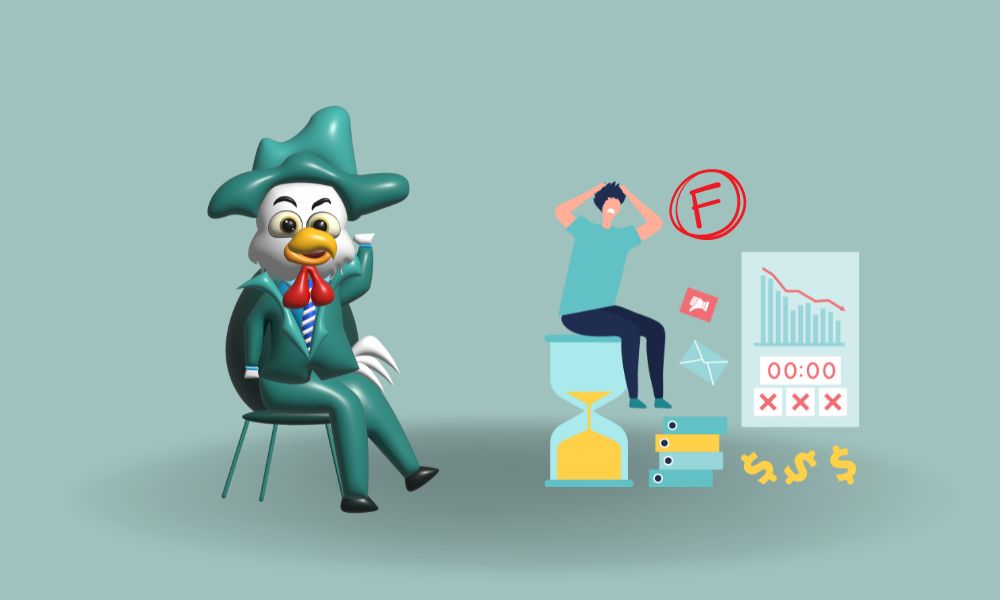
A retail trader is someone who runs their own business and doesn't work for a company or other group.
A retail trader is someone who trades with their own money but not for a living. They buy and sell their own stocks and bonds (PA).
A professional trader is someone who works for an organization and gets paid to trade other people's money. Institutional traders buy and sell stocks on behalf of a group or institution.
Institutional traders include a lot of pension funds, mutual fund families, insurance companies, and exchange-traded funds (ETFs).
Institutional traders can buy securities that most retail traders can't, such as forwards and swaps. Most people don't trade because there are so many different kinds of deals and they are hard to understand.
By definition, the SEC thinks of retail traders as investors who aren't very smart and need help because they can't make risky, complicated investments on their own.
Most stock traders lose money because they don't know enough. Even though many people want to learn, they often look in the wrong places and end up with a poor education.
A lot of people who buy stocks call themselves traders. When asked how they analyze stocks, they say they read newspapers, websites, and online charts with their broker.
When asked more questions, they said that they knew the basic facts needed to evaluate a stock, but they didn't know how to read a chart. None of them had a plan or knew how to deal with money.
A knowledgeable trader knows how to make a good trading plan, analyze a stock to figure out why they're buying or selling it, and manage the trade.
They also use stop-loss and position sizing to limit investment risk and increase returns. If you want to make money in the long run by trading stocks, read my 10 best tips to bust a lot of myths.
Stock trading is risky. Most people who are interested in the market are willing to take bigger risks because they think they can trade after reading a few books or taking a course over the weekend.
Many traders want to get rich quickly, so they jump right into the stock market and use complicated strategies. Many waste their money on hopes that don't come true.
I think that the right use of knowledge is the most important thing in trading. In a bull market, many traders who want to trade do well more by luck than by knowledge.
Strong bull markets tend to hide mistakes in judgment and a lack of understanding, so I don't think you can call yourself a trader unless you've been trading successfully for at least two years.
People ask me every week to show them how to trade quickly, easily, and for little money. If that's you, you're probably like 90% of people.
Realize. Would you go to a doctor who only watched videos or went to a workshop over the weekend? Would you let someone who just read a book about driving work on your car or let your kids ride a bus with such a driver?
If you want to work in your chosen field, you need at least three to four years of college. In the same way, trading stocks is a business that needs to be treated like a job.
Most stock traders lose money because they don't pay attention to it. A trader with knowledge and experience is more likely to be successful in the long run.
It's easy to learn how to trade, but it's hard to understand your own psychology. How well you do in trading will depend on the nine inches between your ears.
Only a lack of psychology is a bigger reason why traders lose money than their own minds.Both trading and the stock market are affected by a trader's mentality or psychology.
Without the right education, traders and investors are driven by fear and greed, which can lead to mistakes that cost a lot of money.
People who want to trade Forex often don't know much about it or haven't done it before. When I ask them why, they usually say they don't have much money, which is exactly why they shouldn't be trading.
Most people who want to trade on leveraged markets but don't have much money to invest are greedy. They think that if they invest $2,000, a leveraged product will give them better returns than the stock market.
If the stock goes up 20% and they have 10 times as much money as they need, they will make $4,000. In their minds, quick gains are worth the risk, but they rarely think about what they could lose.
This romantic idea is not true. The market doesn't care how much you know or how much money you have. It does what it does whether or not you make money trading stocks.
If you don't have a lot of money, you care about it a lot and can't afford to lose it. If a trade goes wrong, even a little bit, the fear of losing kicks in, making people make bad decisions that cost them money.
People keep an eye on their trades every day or throughout the day and make decisions based on how volatile the market is in the short term.
When people try to get back money or profits they lost in the market, they overtrade. Beginners make their mistakes worse by getting out of profitable trades too soon out of fear of losing money.
Fear is a much stronger emotion than greed, and it comes from not understanding or trusting a person's trading plan and not being able to carry it out properly. Greed or the desire to make money quickly is what makes us place a trade, not fear.